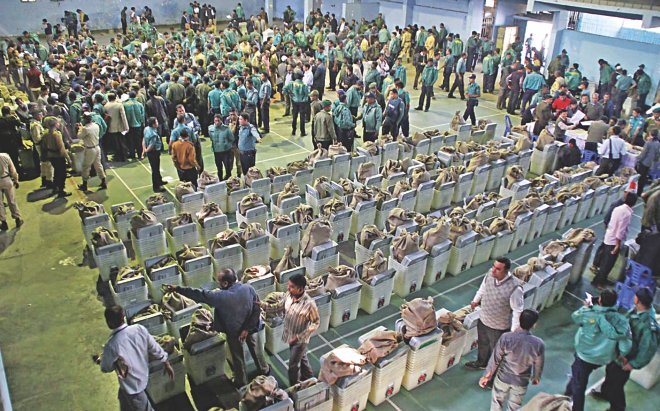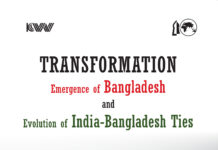
If one wants to draw any similarity between the two so-called one-sided parliamentary polls — the one of February 15, 1996, and the one to be held today — it will be spotted in the solid stance of the Jamaat-e-Islami against both the elections.
Though it waged movements against both the polls for establishing non-partisan poll-time governments, the Jamaat this time has one more agenda, a very loud and clear one. And that is shielding its war crimes defamed leaders from the ongoing trial process.
In 1996, the party was on the streets alongside the Awami League, Jatiya Party and others. In that movement, the AL had played the key role in waging a determined agitation to foil the February 15 election held under the then BNP-led government.
The AL enforced a 48-hour countrywide hartal before election day. Their activists snatched away ballot papers and ballot boxes in many districts including Barisal, Tangail, Netrakona, Pabna and Nilphamari. They also set polling stations on fire in some districts.
The violent protests on polling day had left at least 10 people killed. Voting in more than 2,800 polling stations in 59 districts had to be suspended due to the opposition’s protests.
Once the polls were over, the AL launched a non-cooperation movement.
It was the AL that led the agitation all along, forcing the then BNP-led government formed through the February 15 election to step down on March 30, 1996. Before the dissolution of the then parliament, the BNP amended the constitution through introducing a caretaker government system that would preside over a fresh general election.
After around 18 years, the tables have turned. This time, it is the BNP-led 18-party opposition alliance which has been waging a movement for reintroduction of the caretaker government system, which was abolished by the AL-led government in June 2011.
The alliance has boycotted the election to be held today and enforced a 48-hour countrywide hartal since yesterday to foil the polls. Opposition activists, including Jamaat-Shibir men, yesterday torched many polling centres across the country. They also torched ballot papers in Gaibandha.
The Jamaat, a key ally of the BNP-led alliance since it was formed before the 2001 general elections, has been playing an important, indeed violent role in intensifying the anti-government agitation.
The party even took the driving seat, thanks to the organisational weakness of the BNP, in order to give the government a tough time. Enforcement of the opposition’s agitation programmes, like blockades and hartals, now largely depend on Jamaat-Shibir men’s participation. In many areas, they have unleashed a rein of terror, killing even policemen.
Despite severe criticism for maintaining relations with the Jamaat, BNP policymakers have opted to keep the anti-liberation forces in their alliance to realise the demand for the installation of an election-time non-partisan government.
The Jamaat has made all-out efforts to foil the election and to unseat the government since it believes the success of the movement will benefit it the most.
Apart from taking to the streets alongside the BNP, the party on its own has also been observing agitation programmes to foil the ongoing trial of the 1971 war criminals.
Nine senior Jamaat leaders, including its chief and secretary general, have been facing trial or have been convicted on charges of crimes against humanity committed during the country’s Liberation War in 1971.
Jamaat’s assistant secretary general Abdul Quader Mollah has been executed after being convicted of war crimes.
Source: The Daily Star









